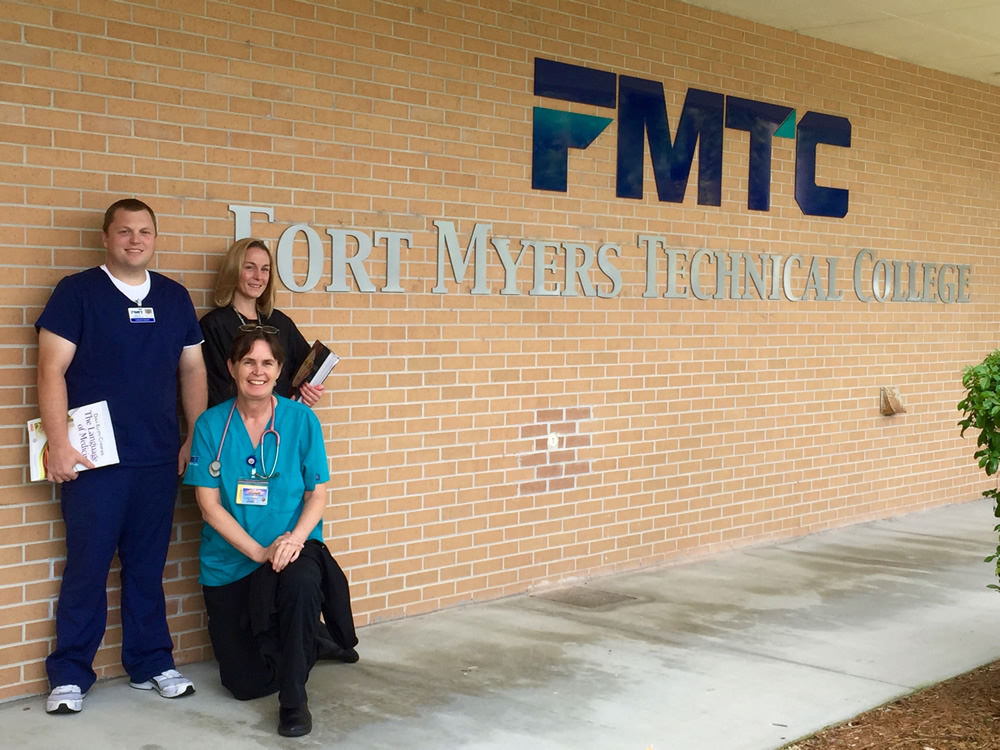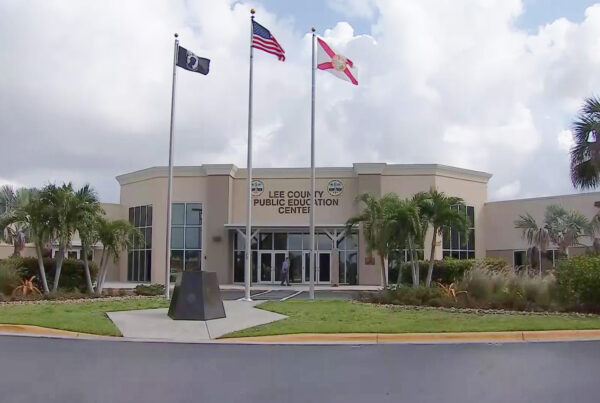
Name change supports value of a post-secondary technical college education
By adding college to the name of their schools, four Southwest Florida technical centers have taken an important step in increasing awareness of their post-secondary certification programs and the opportunity for residents to advance to a well-paying career in as little as a year. Now known as technical colleges, the name changes at the Lee and Collier County schools are expected to reframe student and public perception and entice more students to consider certification programs to meet the regional workforce’s demand for skilled labor.
“Evidence shows by changing the name to more accurately reflect the emphasis on post-secondary education, enrollment increases,” said Bill McCormick, director of the newly named Fort Myers Technical College. “It changes perceptions but also better communicates what we do here. Students, for so many years, have been told to succeed in America; they need to go to college; and they believe it. The core message we’re sending is that post-secondary education takes many forms, whether it’s a university, a community or state college or technical college.”
So far 28 of Florida’s 47 technical institutes and centers have changed their names to college, including Fort Myers Tech and Cape Coral Technical College in Lee County, and Lorenzo Walker Technical College and Immokalee Technical College in Collier County.
Deelynn Bennett, director of Charlotte County Technical Center, expects to pursue a name change in the future, an act that requires the approval of the school board.
“Right now we’re making changes so we are aligned and articulating credits into state colleges,” she said. “We have to make sure there’s a fluid path built within all our programs, then have a discussion with our new superintendent. It’s something I’d like to see happen.
“The name change shows that technical schools are places of higher learning,” Bennett said. “When people see the word college it draws more candidates because they think of post-secondary opportunities and make inquiries.”
Technical college education provides fast-track certification to jobs, preparing students for careers with intense one- to two-year programs. Tuition is a fraction of two- or four-year colleges and free to high-school students in the school district.
Increasing the number of Southwest Florida residents with certifications is the goal of the FutureMakers Coalition, which is tasked with improving the post-secondary attainment rate of college degrees and certifications from 27 percent to 40 percent by 2025.
Program graduates at McCormick’s school earned a median $38,000 in 2011, the highest among the state’ technical schools, and $10,000 more than a community or state college graduate, he said.
“We’re fighting for every edge we can get to entice more high-school students to enroll in technical college,” said McCormick. “Our programs prepare students for occupations that require post-secondary training, education and certificates. We’re providing skilled labor.”
In fact, Fort Myers Tech can’t produce enough certificate holders to meet demand in some areas of the workforce.
“Air-conditioning and auto technology are among the highest-paying jobs because employers are desperate for people with these skills,” McCormick said. “Our graduates can pick from a number of job offers. Our workforce is in need of skilled labor. It’s one of the reasons an air-conditioning tech out-earns most college degree holders. The workplace is going to pay whatever it takes to employ these workers.”
Shannon Rousey walked away from a high-stress job in the automotive sales industry to enroll in FMTC’s major appliance and refrigeration repair program. His GI Bill paid for his education and provided a paycheck while attending the program.
“Everybody thought I was crazy to go back to school but I was never home,” said the Lehigh Acres resident and father of six who finished the 18-month course in a year. “I love what I’m doing now.”
Upon earning his certification in 2013, Rousey started his own company Appliance Medic. His wife left nursing to help him run the business.
“The way my life is right now seriously is a testament to the school, the instructors and administration,” he said. “They want you to get a job.”
Like Rousey, 80 percent of technical college certification holders in Southwest Florida start their own small businesses, the backbone of a local economy.
The US Bureau of Labor Statistics projects faster than average growth in a number of skilled labor categories through 2020: medical assistants, licensed practical nurses, pharmacy techs, information services and support services. Some of the 33 certificate programs it identified offer salaries as high as $80,000.
Technical colleges provide intense training for a variety of career certifications – from cosmetology and construction, aerospace and information technology to practical nursing and digital design. Nationally popular programs include healthcare, personal and culinary services, mechanic and repair technologies, and computer and information sciences.
When she graduates this November from FMTC’s practical nursing program, 54-year-old Elizabeth Stork of Fort Myers expects to earn twice as much as she did working in a restaurant kitchen. A Pell Grant covered the tuition of the yearlong program.
“I’m getting a very good understanding of the field,” she said. “Our instructors aren’t just teaching us to pass the (licensing) exam; they’re focusing on what employers want. They’re really getting us prepared for the marketplace. They’re asking for more from us than just getting our certifications, and employers really appreciate the training we receive.”
Married with a 7-year-old child, Stork said the coursework has been grueling, and clinical assignments – actual hands-on training – have included working at local hospitals. She’s currently the top student in her class of 11.
“It’s tough balancing family and school, but I told my family it would be worth it when I graduate.”
Stork’s coursework at the technical college will also articulate to college credit at Florida SouthWestern State College or other state-run colleges should she pursue registered nursing. She can find gainful employment as a licensed practical nurse while enrolled in courses for the advanced training.
“Someone who attends technical college isn’t closing the door on college or university,” said McCormick. “We are a bridge between high school and post-secondary education. For the majority of young people, there are barriers in the way, and they can’t jump from North Fort Myers High School to the University of Florida. Technical college prepares them academically, mentally and financially, and they can complete post-secondary work in as little as a year or a year and one half, receive an industry-recognized certificate and earn great wages.”
At Charlotte Tech, about 185 students are non-traditional, adults who have returned to school to earn credentials and certificates in auto mechanics, HVAC, construction and nursing – among the school’s most popular offerings.
“We’re above the state average for adult completion,” said Bennett.
With the name change, McCormick believes more students will consider technical college to attain post-secondary training.
“When students and parents are making decisions and looking for post-secondary options, they all talk about college,” he said. “If you ask a 17-year-old if he or she will go to a technical institute, he or she doesn’t quite understand what it is or what we do. When you ask about a technical college, the mindset changes. It’s as simple as that.”
ABOUT FUTUREMAKERS:
Formed in 2015 around existing regional collaborations, the FutureMakers Coalition’s goal is to increase the number of college degrees and post-secondary certifications from 27 to 40 percent by 2025 throughout Charlotte, Collier, Glades, Hendry and Lee counties and promoting economic prosperity with a career-ready workforce.
As one of Lumina Foundation’s 75 national Community Partners in Attainment, the FutureMakers Coalition is a diverse regional partnership involving education, government, business, nonprofit and citizen stakeholders and advocates formed with a cradle-to-career concept to ensure success for traditional students and adult learners.
The Coalition is divided into Regional Action Teams that co-create solutions together, collectively providing a framework of support focusing on four main areas to increase completion: aspiration and preparation; access and entry; persistence and progress; and completion. The Southwest Florida Community Foundation serves as the anchor organization for the Lumina charter.
The FutureMakers Coalition encourages residents to join and support this community-changing initiative. For more information, visit www.FutureMakersCoalition.com, call 239-274-5900 or email Tessa LeSage at TLesage@floridacommunity.com.



























